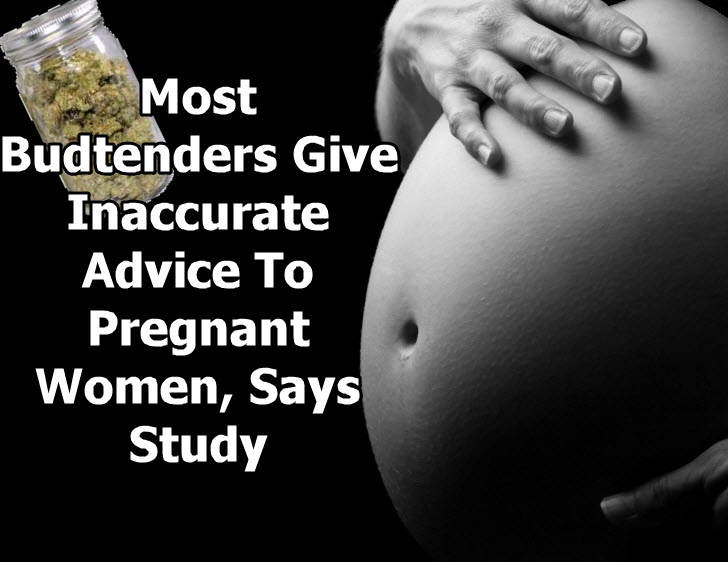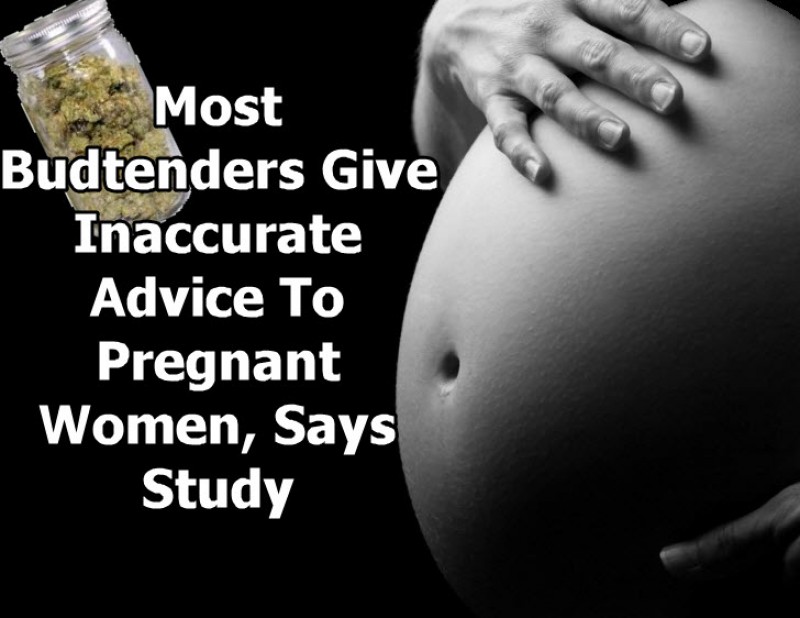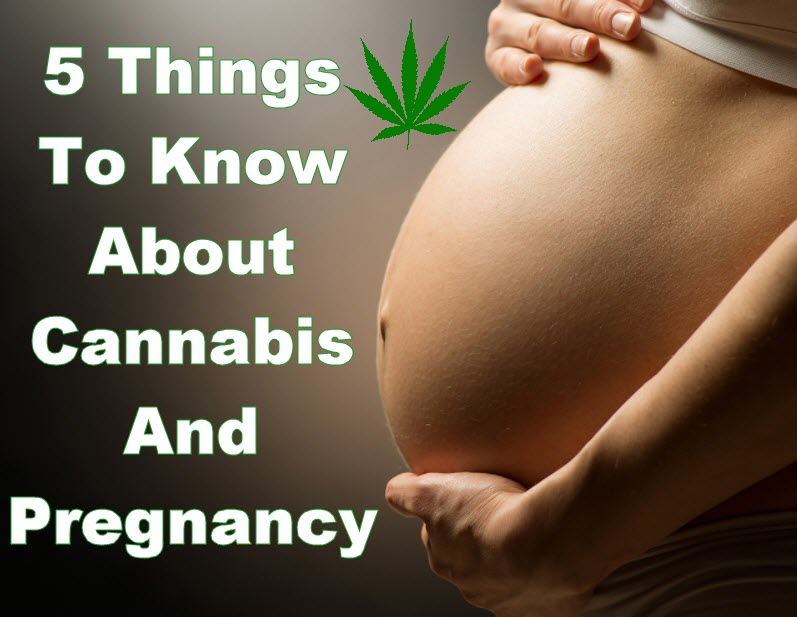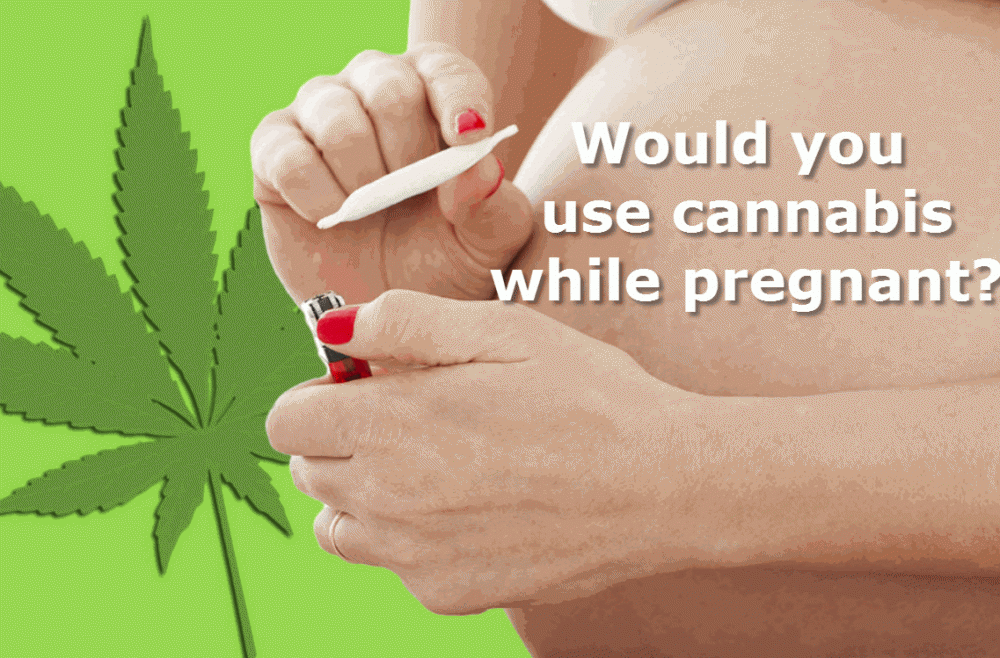Most Budtenders Give Inaccurate Advice To Pregnant Women, Says Study

As cannabis legalization spreads across the country, the number of pregnant women using pot is also increasing.
But that doesn’t mean that all expectant mothers know about using cannabis for pregnancy.
A recent study revealed that cannabis dispensaries are recommending strains to treat morning sickness, despite the fact that its safety is deemed questionable by health authorities. This hasn’t stopped pregnant women from self-medicating with cannabis, and anecdotal evidence says that there is nothing wrong with it.
The study, conducted by researchers from the University of Colorado School of Medicine and the Denver Health and Hospital Authority, looked at 400 dispensaries throughout the state using a “mystery shopper” approach. The callers said that they were 8 weeks pregnant, was suffering from morning sickness, and needed advice about using cannabis products. The dispensaries chosen were selected randomly from the Colorado Department of Revenue Enforcement Division website.
Out of the 400 cannabis dispensaries, 37% were licensed to sell medical cannabis, 28% for retail sales, and 35% were licensed for both. They found that almost 70% admitted to recommending cannabis products for women suffering from nausea during early stages of pregnancy. Budtenders surveyed for the study also said that they relied on their own personal opinions when they made recommendations. However, the frequency of recommendations also varied based on license type; 83% were medical, 60% were retail, and 61% were both.
“As cannabis legalization becomes more common, women should be cautioned that advice from dispensary employees might not necessarily be informed by medical evidence,” the researchers wrote in the June issue of Obstetrics and Gynecology.
This is alarming for the authorities, due to the studies that say cannabis use during pregnancy can cause problems later on. “Babies exposed to marijuana in utero are at increased risk of admission to neonatal intensive care units. There are also concerns about possible long-term effects on the developing brain, impacting cognitive function and decreasing academic ability later in childhood,” says Dr. Torri Metz, the study’s lead author and a perinatologist at Denver Health.
“First line of medical therapy for treatment of nausea and vomiting during pregnancy is vitamin B6 and doxylamine. This combination has been studied extensively and there is no concern for fetal harm.”
The study also noted that pregnant women may not want to disclose their cannabis habit with doctors out of fear that they may suffer from legal consequences. So they get their advice from cannabis retailers instead.
An alarming incidence that arose from the study was that one employee who was called up by the researchers disclosed terrifyingly inaccurate information, telling the caller that “after eight weeks of pregnancy, everything should be good with consuming, like, alcohol and weed and stuff, but I would wait an extra week.” Another one said that consuming edibles wouldn’t put the baby at any risk at all, since “they would be going through your digestional tract.”
The researchers concluded that there needs to be more done in terms of education and policy, involving dispensaries especially now that cannabis legalization is more widespread.
How Bad Is Cannabis, Really, For Pregnant Women?
One of the oldest and most popular studies assessing the impact of cannabis use by pregnant women dates back to the 1980’s. Melanie Dreher, the Dean of the College of Nursing at the University of Iowa, traveled to Jamaica where she and her colleagues studied 30 cannabis-using expectant mothers, and compared them to 30 mothers, who came from the same socio-economic background but didn’t smoke pot. The researchers used various metrics to benchmark the results of the study, and they found that newborn children of all showed no differences 3 days after birth. But once they were 30 days old, the infants of the mothers who used cannabis revealed better performance when looking at automatic stability and reflexes, than the infants of mothers who abstained from cannabis.
While there are still several studies that disprove the safety of cannabis use for expectant (and breastfeeding) mothers, shouldn’t this issue be left to the mother to decide? After all, we can’t deny that there are many mothers out there who choose to use cannabis while pregnant yet give birth to completely healthy newborns.
The Problem With…. Budtenders?
It seems that there is a real issue surrounding the lack of training for budtenders. This doesn’t just apply to their recommendations to pregnant women, but as a whole in general.
A recent study conducted by California researchers analyzed staff who trained at both medical and non-medical dispensaries in various states revealed that only 55% of dispensary staff receive formal training. The study, entitled Training and Practices of Cannabis Dispensary Staff, which was published in the journal Cannabis and Cannabinoid Research, also revealed that a shocking 20% received formal training about the medicinal benefits of cannabis, and only 13% were trained about the science of how cannabis works.
If the credibility of the very people who prescribe cannabis is questionable, this could put peoples’ lives at risk. Shouldn’t there be more stringent standards about hiring budtenders? The billion-dollar cannabis industry is the way it is because more people need it as medicine, and we need more trained people on the frontline.
OTHER STORIES YOU MAY ENJOY...
CANNABIS AND PREGNANCY - WHAT IS THE DEAL, CLICK HERE.







